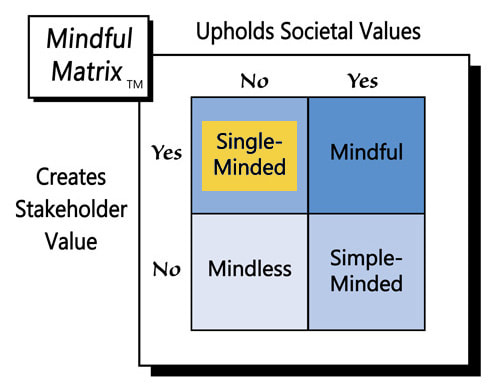Based on Simon Rich’s book “What in God’s Name,” Miracle Workers tells the story of two low-level angels, Craig and Eliza, who try to save humanity from God, who has grown “frustrated with the current state of Earth.” The seven-episode TBS series, which aired this past February and March and is still available for streaming online, summoned considerable star power, namely Daniel Radcliffe of Harry Potter fame, who plays an angel named Craig, and Golden Globe winner Steven Buscemi, who plays God and who has appeared in a wide variety of TV shows and films, including Fargo and Reservoir Dogs.
At first glance, the premise of Miracle Workers seems like it could be biblical. Those familiar with the book of Exodus may recall an exchange between God and Moses after he returned from Mount Sinai with the Ten Commandments to find the Israelites worshipping a golden calf. Ironically, the first and second commandments on the stone tablets were “You shall have no other gods before me” and “You shall make no idols.” God wanted to “destroy” the Israelites and make Moses into a great nation, but Moses seemingly convinced God to relent, and the Israelites were spared.
Compared to the gravity of that scriptural account, Miracle Workers casts God and religion in a much less serious light. Admittedly, I’ve only seen the trailer, watched some online segments of the show, and read reviews, but it quickly becomes apparent that the series presents a less-than-complimentary perspective of the Divine.
For instance, in just the first few minutes of episode #1, the series shows God dressed in sweatpants, an unbuttoned shirt, and sandals with socks, lounging purposelessly on a couch, as he scrolls through TV channels. Suddenly, an assistant appears to call him to a 1:00 meeting, which he hopes is for a “fantasy football draft,” but she reminds him he is to present his “plan to end all pain.” He obviously isn’t ready, by virtue of his response, “That was today?”
Fast forward in the show, and an even more unkempt-looking God finishes swigging a beer, wipes his mouth with his hand, and launches the empty bottle through the air toward a small round trashcan. The bottle misses the basket and shatters on the floor, leading him to let loose an expletive. In another episode, assistants find God brushing his teeth with foot cream, apparently because he can’t read the labeling on the tube.
As tensions related to religion rise around the world, maybe Buscemi’s portrayal of God is what’s needed: a deity who’s more approachable—one we can relate to and laugh about. After all, “laughter is the best medicine.”
Interestingly, I’m currently working with two colleagues on a research project that’s investigating how advertising humor might support reconciliation. I’m a big believer that laughter goes a long way in breaking down social barriers and developing interpersonal rapport. I’m also a big proponent of humor in the classroom, which students seem to appreciate.
Of course, there’s a difference between laughing with people and laughing at them. There’s also a difference between good-natured, two-way teasing in which people playfully pick on each other, and one-way, vicious skewering of others.
For instance, if a friend shows up at an event with his hair wildly wind-blown, others might joke, “Joe, did you just wake up?” People actually appreciate that kind of benign ribbing because it shows they’re liked and considered part of the group. On the other hand, few would think it’s funny to say, “Don’t be an idiot, Joe. Wear a hat next time or the wind will blow away the little hair you have left.” The latter “humor” feels much less friendly and more malicious.
As the earlier examples suggest, the humor in Miracle Workers makes God out to be a bumbling buffoon, i.e., an idiot. But, does it matter? God is big; He can take it. That’s true. He certainly doesn’t need human approval to build His self-esteem or validate his existence. The problem, however, is in how people perceive the show’s humor.
So, what do viewers think of Miracle Workers’ unconventional comedy? Some people love the show. For instance, one reviewer said, “This by far, is the funniest comedy I have ever seen. I cannot wait to watch more.” Another offered similar praise, “I think this is a creative and fantastic TV show which will be one of the greatest sitcoms.”
Other opinions are more tempered, for example: “The comedy was pretty decent but nothing I'd consider really, really funny.”
Then, there were those who saw a comedic catastrophe: “I was hoping the show would be better than the promos. It wasn’t. It felt like a high school play. The writing was bad without one good joke. It needs help from God. A miracle.” Another offered a similar critique, “This show is not even remotely funny. It borders on pathetic.”
The preceding perspectives were solely about the show’s humor. How did people perceive the comedic portrayal of God? As might be expected, some took exception to the divine representation saying, for instance, “I don't like that God is portrayed as a maniacal sociopath who manipulates angels into doing horrible things to people on Earth whom he decides he doesn't like,” and “[I] don't like God being portrayed as a slovenly, self-centered maniac,” and “Our God is perfect in All Ways. This show portrays God as being a bumbling idiot unable to make a decision . . . Nothing but blasphemy.”
However, others were quick to discount such ‘biased’ interpretations, many making the same plea to not take the series too seriously because “It’s just a TV show.”
That is a good point. Miracle Workers isn’t part of the K-12 public school curriculum. Still, is it fair to dismiss anything as “just a ____” until we see its impact? When it aired, Alex Haley’s Roots was “just a TV show,” but it had indelible social influence.
Of course, Miracle Workers is a comedy, not a critically-acclaimed drama, so does that mean its cultural impact isn’t serious? Probably not—just look at sitcoms over the years that have helped shape society like All in the Family, The Jeffersons, and The Cosby Show, to name a few.
So, if TV shows, even sitcoms, have social impact, a final question seems to be: Is any topic fair for them to ridicule? People increasingly agree that it’s wrong to tease people about things like their race, their gender, and their body shape/size. Beliefs, however, appear to be held to a different standard, and perhaps they should. We are born as a certain race and gender, whereas our beliefs are things we choose and can more readily change.
However, not all beliefs are equal. For instance, I’m a big Pittsburgh Steelers fan, but I don’t mind getting teased about that team loyalty, or about my beliefs about my field—marketing. I should also be able to take teasing about my Christian faith, as others have endured far worse.
It’s different, though, when the butt of the joke isn’t me, but God. It’s hard to explain why other than, for a person of faith, God is ‘the ultimate’ and therefore deserving of the utmost respect. There’s also probably a connection to the third of the Ten Commandments, “You shall not take the name of the Lord your God in vain,” which any unflattering or derogatory portrayal of God seems to violate.
The First Amendment to the U.S. Constitution protects free speech, which allows Miracle Workers to lampoon God. However, just because an organization or an individual has a right to do something doesn’t mean that they should.
I once heard a joke about a man who wanted to know if there would be golf in heaven. Sometime later, I remembered the joke and told it to two Christians I was with at the time. The joke didn’t make fun of God, but one of the people kindly expressed that he didn’t think any humor involving God was appropriate. The other individual defended my choice.
Although I still believe the joke is fine, I appreciate that first person’s beliefs and wouldn’t want to cause him angst by using similar humor around him. A little laughter is not that important. Sometimes the best thing to do is to not exercise our rights, out of respect for others.
When it comes to not caring for the humor in Miracle Workers, I know I’m in the minority. More people like the show and don’t take issue with it taunting God. So, the series seems to be a success, and it will likely continue to attract viewers online and perhaps continue into a second season. However, the show’s insensitivity toward one of many people’s most strongly held beliefs makes Miracle Workers “Single-Minded Marketing.”
Learn more about the Mindful Matrix and Mindful Meter.
Check out Mindful Marketing Ads and Vote your Mind!




 RSS Feed
RSS Feed